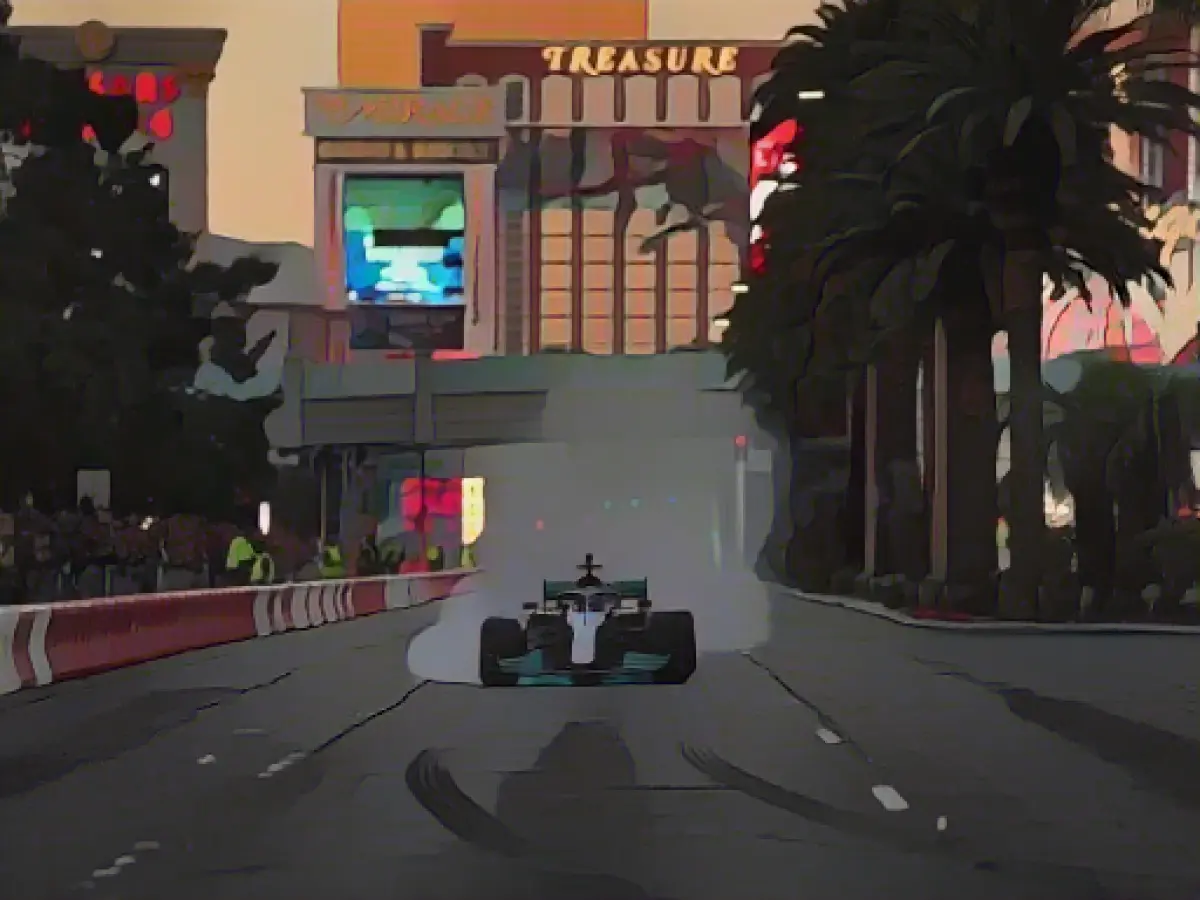Race organizer: "Basically" you paralyze Las Vegas
More than 40 years after the two flop events in Las Vegas, Formula 1 wants to set standards in the gamblers' paradise and create a new fixture in the racing calendar.
In 1981 and 1982, the premier class of motorsport staged a Grand Prix in the parking lot behind the Caesars Palace Hotel, which was not well received by the drivers or the local community.
"The track in the Caesars Palace parking lot was very different from what we are planning to do here. But it's all part of the legacy and the incredibly rich history that Formula 1 has," chief organizer Renee Wilm told Deutsche Presse-Agentur ahead of the penultimate Grand Prix of the year on Sunday.
Parking lot flops should be history
"We want to set a whole new standard for the fan and customer experience on a race weekend in Las Vegas. In a city known for offering the highest level of quality in terms of food, drink and entertainment, the luxury and glamor that Las Vegas offers on a daily basis is a perfect match for us in Formula 1," explained Wilm, who is actually head of the legal department at Formula 1 rights holder Liberty Media. The media company entrusted her with the organization of this important race.
This time, the Grand Prix runs past the famous hotel complexes on Las Vegas Boulevard, the so-called Strip. There were plenty of problems in the run-up to the spectacular project in the gamblers' paradise. The project, which cost the equivalent of around 460 million euros, was under immense time pressure, it was necessary to come to terms with the demanding neighborhood, and a strike by hotel and restaurant workers was only averted at short notice. In addition, traffic around the city center circuit temporarily comes to a standstill during the Grand Prix weekend.
"Not a script"
"You have to keep in mind that you are basically paralyzing a city that is in operation around the clock, you are closing many business sectors, including 60,000 hotel rooms. The amount of traffic planning, security planning and general logistical planning that was required to organize this event was truly monumental," Wilm explained.
"There is also no script for what we are doing here. This really is a unique event. We are all 100 percent committed to making this event as spectacular as possible."
Traffic flow in particular will be a challenge - not least for the many employees in the service sector who commute to work. "We need to keep cars and people moving in Las Vegas. Working closely with the fire and safety department, we have developed a series of logistics plans that will allow employees and guests to move around the circuit even when the Strip is closed," Wilm explained.
"When you consider that we are closing three miles of public roads and creating an island, there has to be a way to get on and off that island while the roads are closed. To do this, we had to build temporary bridges, which are very costly and have caused logistical problems in their construction," said the chief organizer. However, in cooperation with the local authorities, efforts were made to minimize the disruption as much as possible.
Formula 1 aims to surpass the past missteps in Las Vegas with the GP Las Vegas, aiming to set new standards in fan and customer experience. Renee Wilm, the organizer, explains, "We want to offer the highest level of quality in food, drink, and entertainment, which is what Las Vegas is known for."
Despite the challenges, such as intense time pressure, neighborhood negotiations, and averted labor strikes, Wilm remains committed to delivering a spectacular event, saying, "There's no script for what we're doing here. We're all 100% committed to making this event as spectacular as possible."
Source: www.dpa.com








